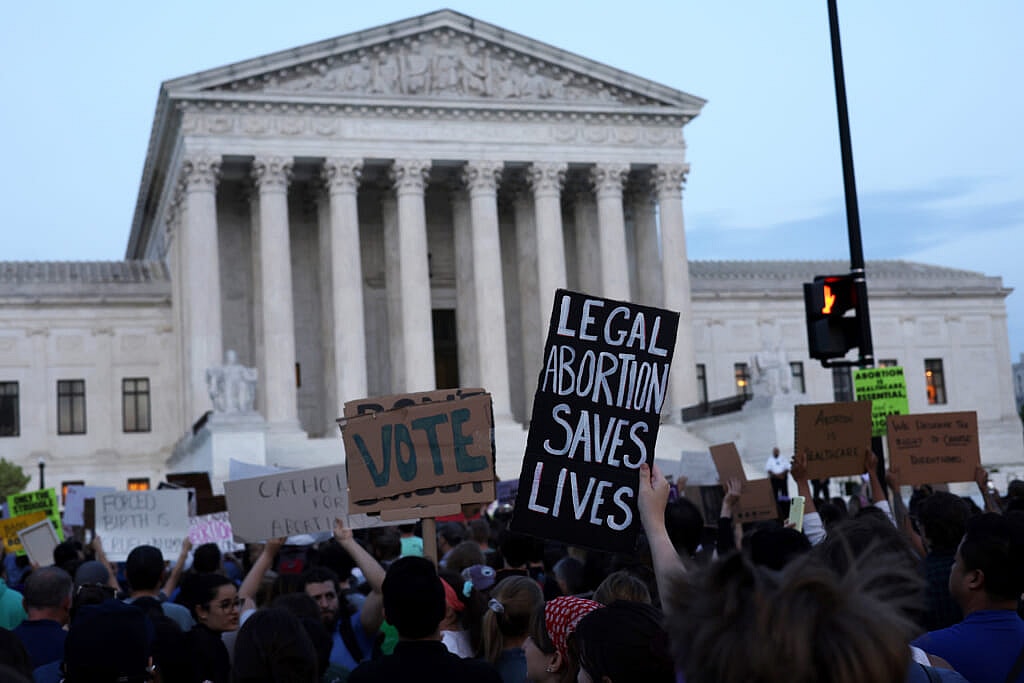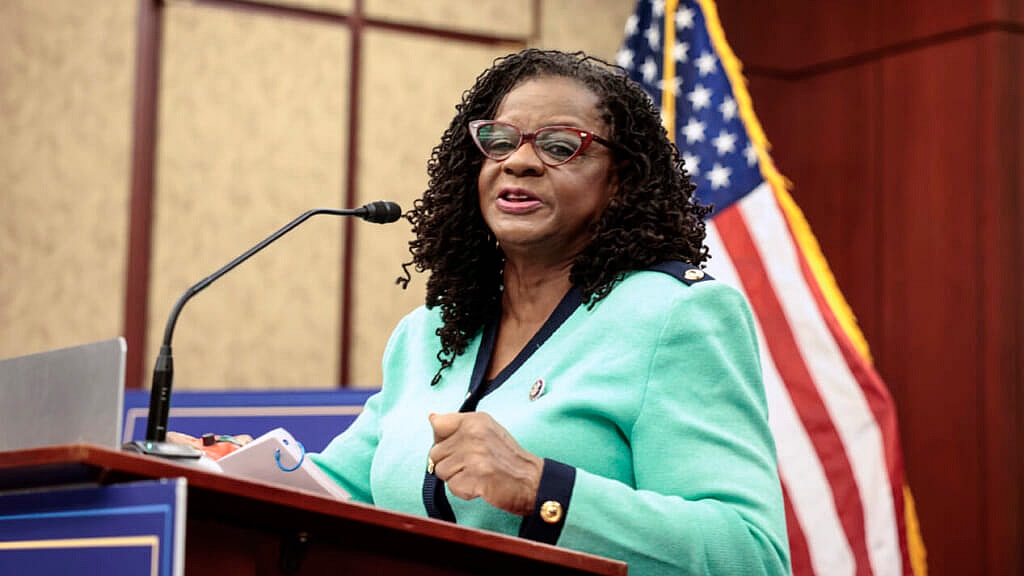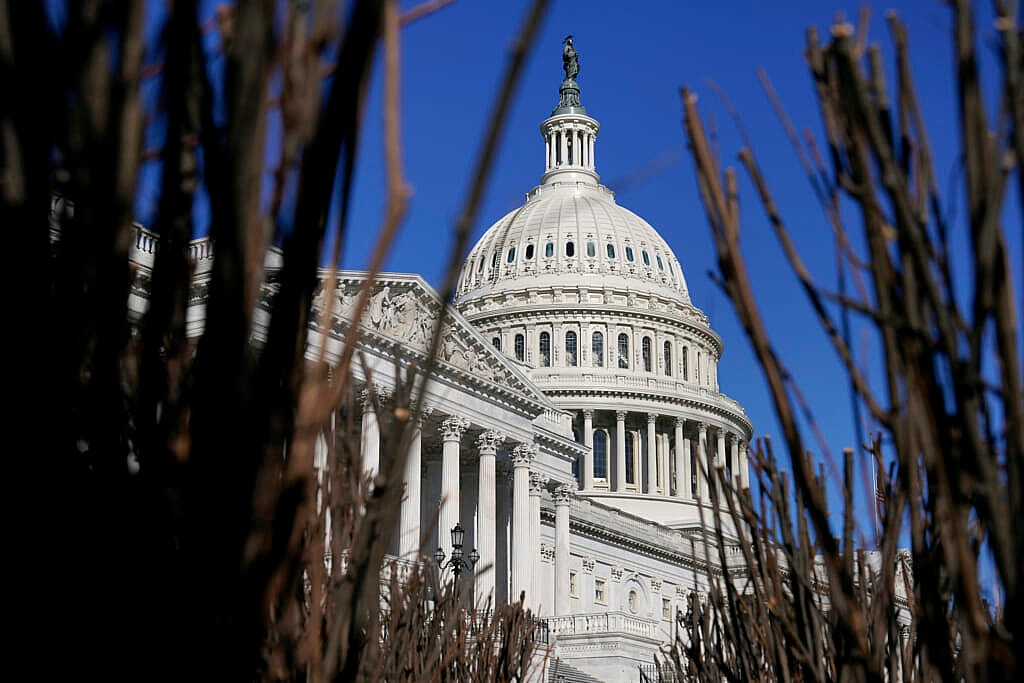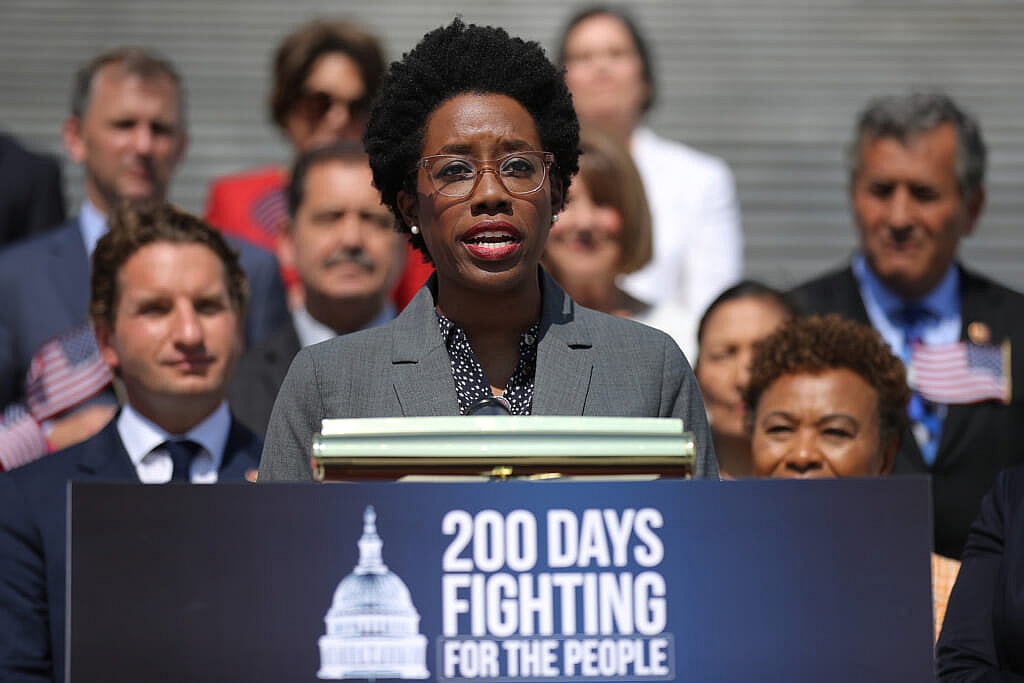On the heels of last week’s leaked opinion draft signaling that the Supreme Court is preparing to overturn Roe v. Wade, Democrats and women’s rights advocates have criticized the conservative movement to restrict abortion.
Not only would it strip away the fundamental rights afforded to women for nearly 50 years, they argue, but there’s an irony in that many Republicans have failed to coalesce around legislation and policy that would actually benefit women who choose to become mothers and their children once they are born.
“We care about the preborn. The difference is that we care about them once they’re here as well,” Congresswoman Gwen Moore of Wisconsin exclusively told theGrio. “As legislators, [we’re] constantly fighting.”

Moore, who has represented Wisconsin’s 4th congressional district since 2005, is one of several lawmakers leading the cause in the federal government to provide support for moms and families, specifically Black mothers and moms of color.
Moore noted how recent battles over the child tax credit, a subsidy for families that expired last year after Congress failed to pass the Build Back Better Act, highlight the struggle in Washington to deliver the economic needs for millions of mothers and families.
“There’s absolutely no debate that it improves child nutrition, child health, child outcomes,” declared Moore, who told theGrio there’s a current fight on Capitol Hill over waivers for free breakfast and lunch programs in schools.
Moore, who became a mother at 18 as a freshman in college, understands the myriad of challenges for mothers, particularly low-income mothers who rely heavily on federal and state programs. Some of those programs include the Supplemental Nutrition Assistance Program (SNAP), the Child Health Insurance Program (CHIP) and the Special Supplemental Nutrition Program for Women, Infants, and Children, popularly known as WIC.
Last year, the Biden administration announced historic permanent increases in SNAP benefits.

Moore stressed that these programs, estimated to benefit tens of millions of families, are important because, “Every single day is a fight, once these children are born, to keep them alive.”
Moore, who is serving her ninth term in the House of Representatives, is a part of a coalition of lawmakers at the forefront of the Black maternal health movement on Capitol Hill. A member of the Black Maternal Health Caucus, the congresswoman has co-sponsored several bills seeking to protect moms and birthing people during pregnancy and after they give birth.
In 2019, Moore introduced the Mamas First Act, which would cover doula and midwife services, including prenatal, delivery and postpartum services. The lawmaker, who represents most of Milwaukee, is currently working on similar legislation with the Black Maternal Health Caucus, which was also formed in 2019.
“The science is already showing us much better outcomes, particularly for at-risk women, Black women, native women, Latina women,” said Moore, herself a mother of three. “It’s just embarrassing in terms of being a so-called civilized nation to have these disparate health outcomes.”

The Black Maternal Health Caucus was founded by U.S. Reps. Lauren Underwood of Illinois and Alma Adams of North Carolina to address the health and economic disparities for America’s most vulnerable mothers.
Underwood, a registered nurse who in 2018 became the youngest Black woman elected to Congress, introduced the Momnibus Act of 2021. It is a collection of 12 bills that, according to the legislation, would direct a “multi-agency response to the maternal health crisis in the United States, particularly among “racial and ethnic minority groups, veterans, and other vulnerable populations.”
The omnibus bill also seeks to address the “social determinants” of maternal health, including child care, housing, food security, transportation and environmental conditions.
Underwood, who represents the suburbs of Chicago, told theGrio that it’s “incredibly important” that Congress takes action by passing the proposed bills within the Momnibus Act and “funding critical programs” to end the maternal health crisis. She noted that Black moms and birthing people are “three to four times more likely to die of pregnancy-related complications.”
Underwood said there is “bipartisan cooperation” around this issue, which she sees as an “opportunity for meaningful congressional action to save moms’ lives.”

The Black maternal health movement saw a boost in national attention through actions taken by the White House, including a presidential proclamation that marked Black Maternal Health Week in 2021 and 2022. The efforts were led by Vice President Kamala Harris, who hosted a Maternal Health Day of Action and convened Biden-Harris cabinet officials earlier this year to discuss a whole-of-government approach to addressing maternal mortality and morbidity.
During her time as a U.S. senator, Harris introduced the Maternal CARE Act, which sought to invest $150 million to address Black maternal health disparities.
A White House official who spoke to theGrio on background about Harris’ work said the first woman, as well as first Black and South Asian politician, to serve as vice president “knows what a tremendous responsibility and privilege it is to have this kind of bouquet of microphones whenever she’s talking about any subject [and] she makes sure to impart that down to her staff.”
The Biden-Harris official noted that through the work of the vice president and members of Congress — including U.S. Sen. Cory Booker, who Harris worked alongside in the Senate and Congressional Black Caucus — to highlight the maternal health challenges for Black women, they also found that there’s a “broader coalition” of lawmakers who support this policy work, including those who represent rural and Native American communities.
Underwood praised Harris for her “extremely effective” role in magnifying the maternal health disparities of Black and Brown mothers.
“The way that she continues to maintain her focus on this issue, in particular, has really allowed us to advance so many of these legislative priorities,” Underwood said.

To date, one bill from the Momnibus Act has already been passed and signed into law. President Joe Biden in November signed the Protecting Moms Who Served Act, which requires the Department of Veterans Affairs to establish maternal care designed to meet the needs of pregnant and postpartum veteran moms.
“Eighty percent” of what is left of the Momibus Act, Underwood said, is included in the $1.7 trillion Build Back Better Act. The legislation would also provide free child care and four weeks of paid family leave. However, the massive social and economic spending bill was tanked in the Senate by Republicans and Democrat Joe Manchin, the senator from West Virginia who expressed concerns over the size of the bill and its potential impact on inflation.
Despite the current legislative roadblock to the $3 billion worth of investments in maternal health, the Biden-Harris administration has been working to do its part. Ahead of Mother’s Day, the White House announced expansions in Medicaid and CHIP coverage to 12 months postpartum in Tennessee and South Carolina, joining Louisiana, Michigan, Virginia, New Jersey, and Illinois. The administration said it is working diligently to expand coverage for new moms, particularly Black and Brown mothers who disproportionately rely on Medicaid services.
Last month, the administration’s Center for Medicaid and Medicare Services announced that it will begin tracking “birthing-friendly” hospitals to assist pregnant people in choosing facilities that have a proven track record of delivering quality maternity care.

The Department of Health and Human Services (HHS) also launched a confidential, toll-free hotline on Mother’s Day for expecting and new moms experiencing mental health challenges.
While the fight for Black and Brown moms remains, leaders in Washington stressed that they recognize the importance of delivering for them and their families.
“It’s really important that we continue to advance these policies so that we don’t see Black moms approach motherhood with a sense of fear, dread, reluctance, uncertainty, or anticipating the worst,” Underwood told theGrio. “We can transform our maternity care system so that we all can experience the joy.”
“Every mom is creating a miracle. There are no days off. There’s no sick time,” said Moore, the Wisconsin representative who delivered a personal message to Black moms.
“We’re not blaming you for not having resources. We’re blaming the wealthiest country in the history of the world for not providing a safe space for you and your children,” she said.
“You’re doing the work of our civilization, producing the next generation of workers and we’re proud of you.”

Gerren Keith Gaynor is a journalist, editor, and correspondent in Washington, D.C. He currently serves as Managing Editor of Politics and Washington Correspondent at theGrio.
TheGrio is FREE on your TV via Apple TV, Amazon Fire, Roku and Android TV. Also, please download theGrio mobile apps today!

